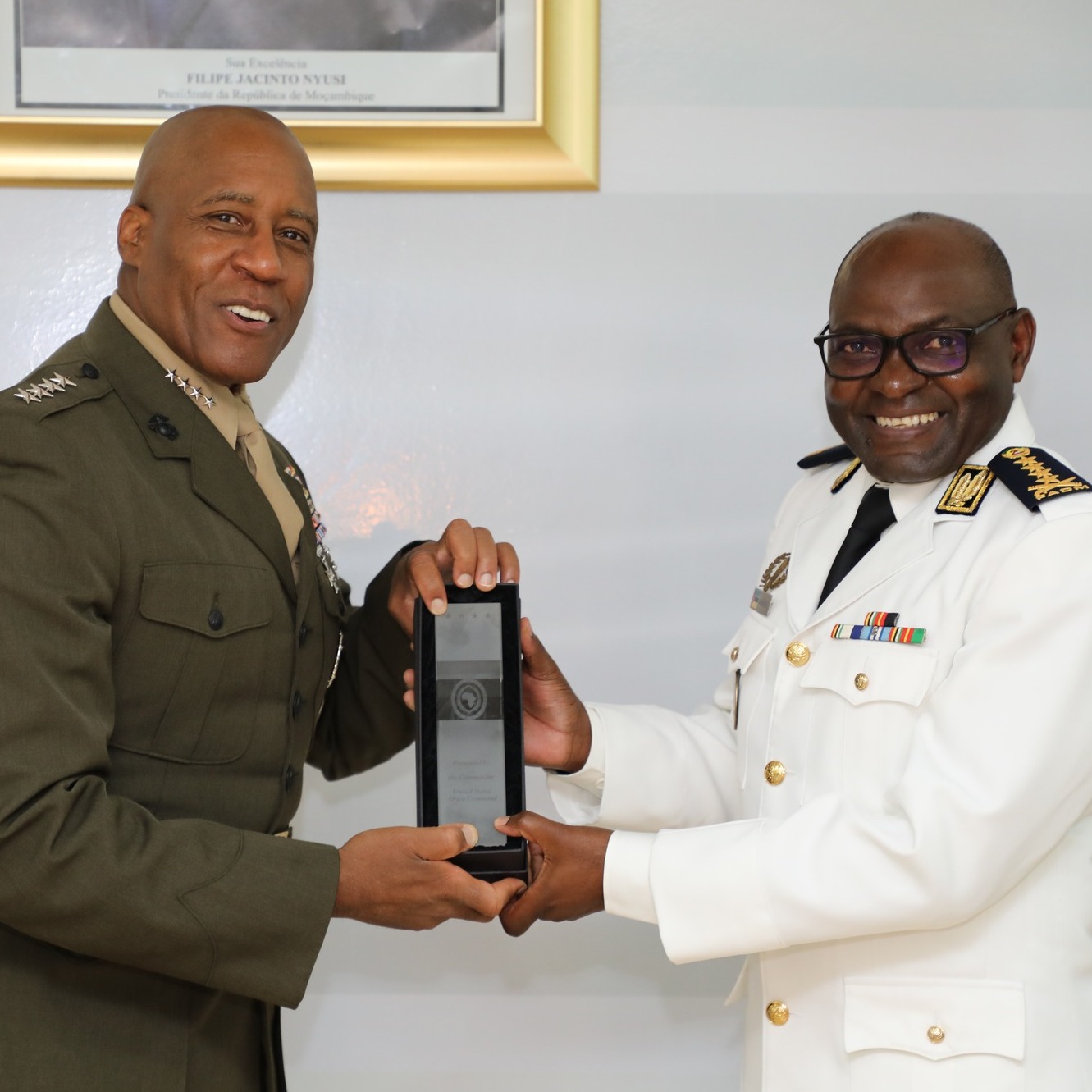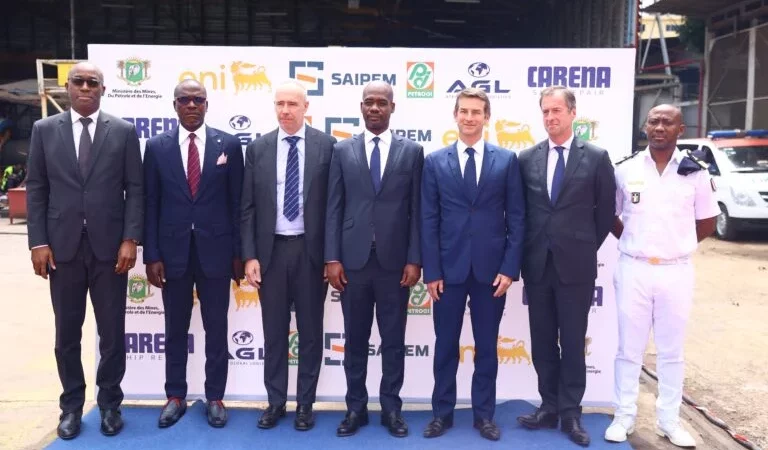AFRICOM Commander Reinforces U.S.-Mozambique Security Cooperation

U.S. Marine Corps General Michael Langley, commander of U.S. Africa Command (AFRICOM), visited Maputo, Mozambique August 15-16 during an official trip to partner countries in southern Africa. This visit reinforces the U.S. government’s partnership with Mozambique to build a peaceful and prosperous future. General Langley traveled to Mozambique together with Deputy for Civil-Military Engagement Ambassador Robert Scott, and USAID Senior Developmental Advisor Maura Barry Boyle, emphasizing the importance of an integrated partnership across defense, diplomacy, and development.
In Maputo, General Langley met with President Filipe Nyusi and with the Chief of General Staff Admiral Joaquim Mangrasse. The officials discussed the importance of the U.S.-Mozambique security partnership and progress in stabilizing the situation in northern Mozambique. General Langley engaged non-governmental and civil society leaders on the challenges facing Mozambique and the opportunities for coordination on both government- and community-led efforts to end the conflict in Cabo Delgado and accelerate development.
“Mozambique is a strategic partner of the United States,” said Ambassador Vrooman. “Our two countries continue to work together to strengthen ties in a wide range of areas, including issues related to security, but also development, investment, and infrastructure.”
“I came here to discuss with Mozambique’s security leaders how we find opportunities to address our shared challenges together,” said General Langley. “We discussed how we can achieve our common goals and expand our partnership. This includes integrating defense with diplomacy and development – the three Ds – to support our partners in Mozambique and build resilience to conflict and the myriad of challenges facing Mozambicans on a daily basis.”
“We want the people of Mozambique to know, we are committed to our partnership and visits like today further expand the dialogue which inevitably produce dividends,” added Deputy Commander Ambassador Scott. Senior Advisor Boyle said, “We also recognize the important work of those dedicated to addressing the challenges associated with marginalized groups.”
General Langley became the 6th commander of United States Africa Command in August 2022. Headquartered in Stuttgart, Germany, U.S. AFRICOM is one of six joint service geographic combatant commands and is responsible for all U.S. military operations and activities to protect and advance U.S. national interests in Africa.
The AFRICOM Commander’s visit comes after U.S. Secretary of Defense Lloyd J. Austin III met with President Nyusi in Washington at the 2022 U.S.-African Leaders Summit, and after the two leaders spoke via phone on August 2. In July, U.S. Assistant Secretary of Defense for Special Operations and Low Intensity Conflict Chris Maier and AFRICOM’s Director of Military Intelligence Brigadier General Rose Keravuori visited Maputo. In addition to increased engagement between senior officials, the U.S.-Mozambique security partnership has also expanded in the realm of training. Since 2021, the U.S. Department of Defense conducted five Joint Combined Exchange Training (JCET) programs between U.S. Special Operations Forces and Mozambican Commandos and Fuzileiros. The U.S. Department of Defense also conducted numerous tactical combat casualty care (TCCC) and combat lifesaver training courses for the armed forces. Mozambican forces recently participated in a second multinational maritime exercise Cutlass Express and continues its long-standing participation in the International Military Education and Training (IMET) program.
In April 2022, the U.S. government selected Mozambique as a priority country for the U.S. Strategy to Prevent Conflict and Promote Stability. With partners, the United States is coordinating its development, diplomatic, and security-sector assistance through a ten-year plan to prevent violence, promote stability, and build resilience in Cabo Delgado and neighboring provinces.
Source : U.S. Embassy in Mozambique



